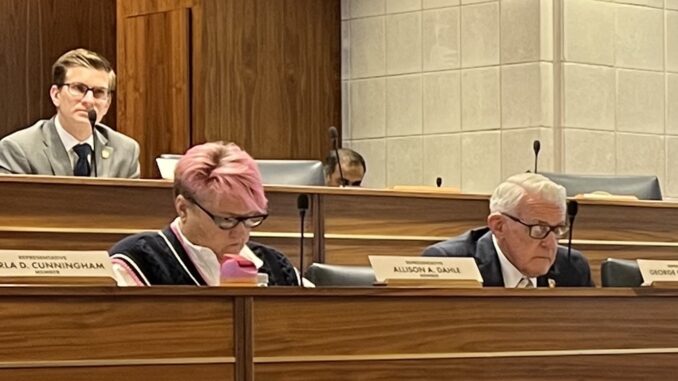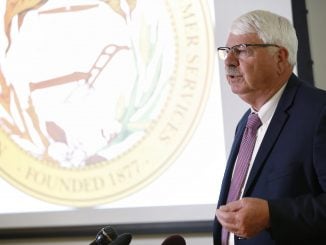
RALEIGH — On Nov. 1, the North Carolina General Assembly House Oversight Committee held a hearing to examine accuracy and delay issues with the state’s unemployment insurance (UI) payments.
“The pandemic highlighted flaws in the ability to make timely first-time payments and to ensure the right amount goes to the right person,” Committee co-chair Rep. Jake Johnson (R-Polk) said in a statement prior to the hearing. “Federal pandemic unemployment benefits were particularly vulnerable to fraud and mistakes. North Carolinians need to know the unemployment system is fair, fast, and free of fraud.”
The Committee heard testimony on the issue from Division of Employment Security (DES) Assistant Secretary Antwon Keith and State Auditor Beth Wood.
Keith told the committee that the sharp increase in filings during the COVID-19 pandemic was significant and said during that period the state “went from 2,500 claims a week to a max of 54,000 in one day.”
The data emphasized in Keith and Wood’s presentations to the committee sheds light on the scope and challenges faced in administering a total of eight unemployment benefit programs during the pandemic.
Across the eight programs, three state and five federal, 3.8 million claims were handled from March 2020 to September 2021 and the state paid out $14 billion in benefits to over 1 million people.
Wood said a historical analysis of North Carolina’s unemployment program found late payment issues had persisted for nine years before the onset of the pandemic.
According to Wood’s presentation, federal guidelines mandate that 87% of initial payments must be disbursed within 21 days. However, during the period from April 4, 2020, to Sept. 4, 2021, only about 60% of the first payments, $2.2 million out of $3.6 million, met the federal requirement.
During that period, approximately $1.2 billion was disbursed, with $438 million, or 36% of the total payments, being delayed. Only two out of the eight programs managed to adhere to the federal requirement.
Keith’s presentation also showed the state had been out of compliance since 2010 when it came to “First Pay” promptness and that North Carolina’s rate for that pay is currently at 59.2% and has been trending downward since 2021.
While Keith was unable to provide a definitive timeline to lawmakers on correcting late UI payment issues, Wood pointed to House Bill 471 that stalled in the Senate.
Under House Bill 471, the state auditor is granted more expansive powers to compel audits and issue deficiency correction recommendations. State agencies would be required to submit progress reports on fulfillment of the correction recommendations to the state auditor and General Assembly.
“It’s not something that will naturally happen unless you, gentlemen, and ladies, intervene,” Wood told the committee, adding that they needed to “legislatively mandate some of these actions.”
Wood had conducted past audits on pandemic UI payments and her findings were similar to the data she provided to the Committee, including $166 million in improper payments because they exceeded the federal limit of 10%.
Between April 1, 2016, and March 31, 2021, roughly 18% of payments were categorized as improper, either exceeding or falling below the intended benefit amounts. In 2020, the improper payment rate was 15.3%, and it increased slightly to 15.8% in 2021.
These improper payments amounted to more than $366 million and Wood indicated 94% of them could be attributed to issues of non-compliance with work search requirements, discrepancies in benefit year earnings, and errors in separation information. Wood also cited lack of monitoring and that manual reviews were not set up to meet federal requirements.
The main theme in Keith’s presentation included issues following the pandemic, with an emphasis on fraud perpetrated during the pandemic.
The presentation showed that since April 1, 2020, the state had recuperated $65 million in funds paid out through both fraudulent and nonfraudulent activities. Approximately $36 million of that total represents payments to claim filers.
Keith said DES has taken steps to combat the issue such as a “Benefits Integrity Alert Visualization Tool,” as well as banking verification processes and improved claim screening.
As a result of the steps taken, DES identified 56,407 suspicious identity issues in 2022 and 28,396 in 2023.
Keith told the committee DES “prevented $64 million from going out of the coffers this year.”
In the two years prior, DES successfully stopped $264 million in fraudulent payments in 2021 and $142 million in 2022, per Keith’s presentation.

